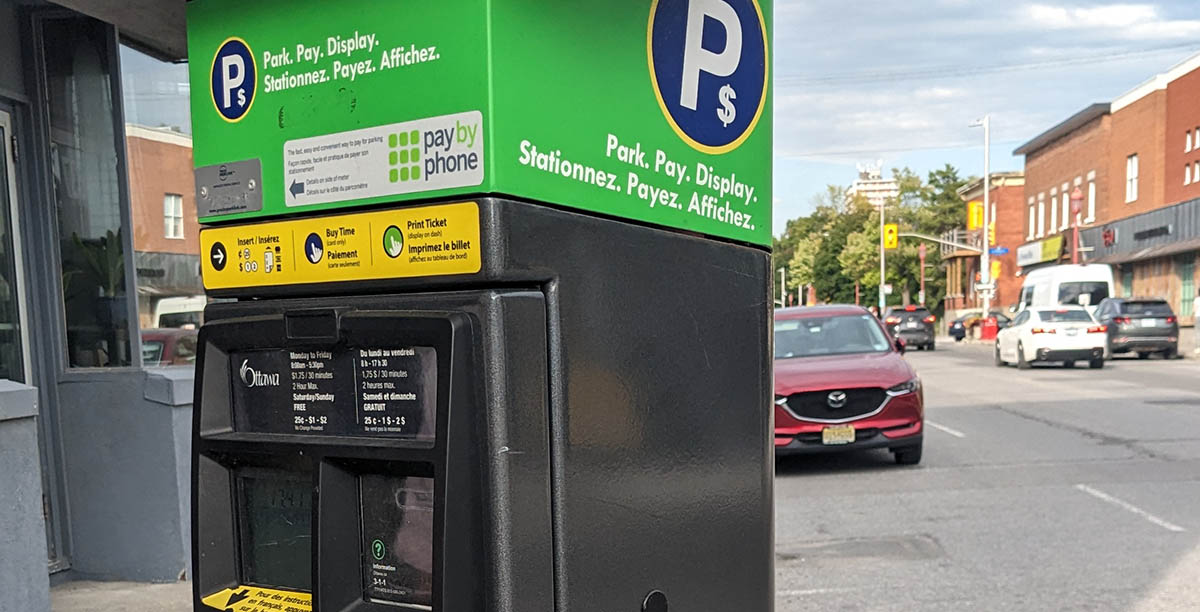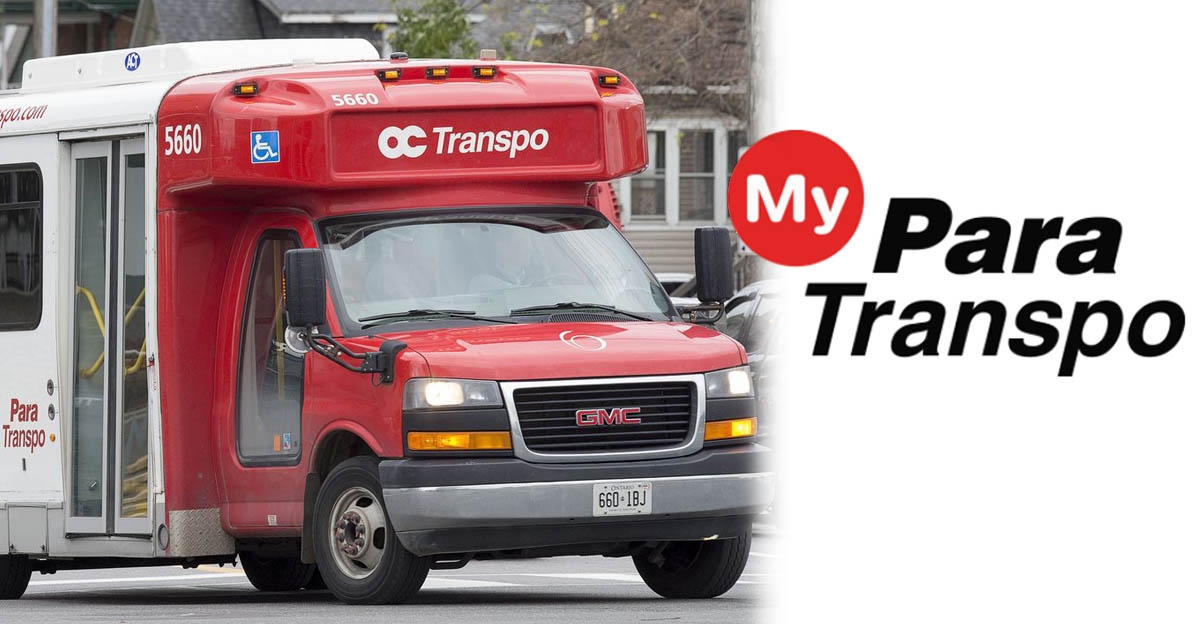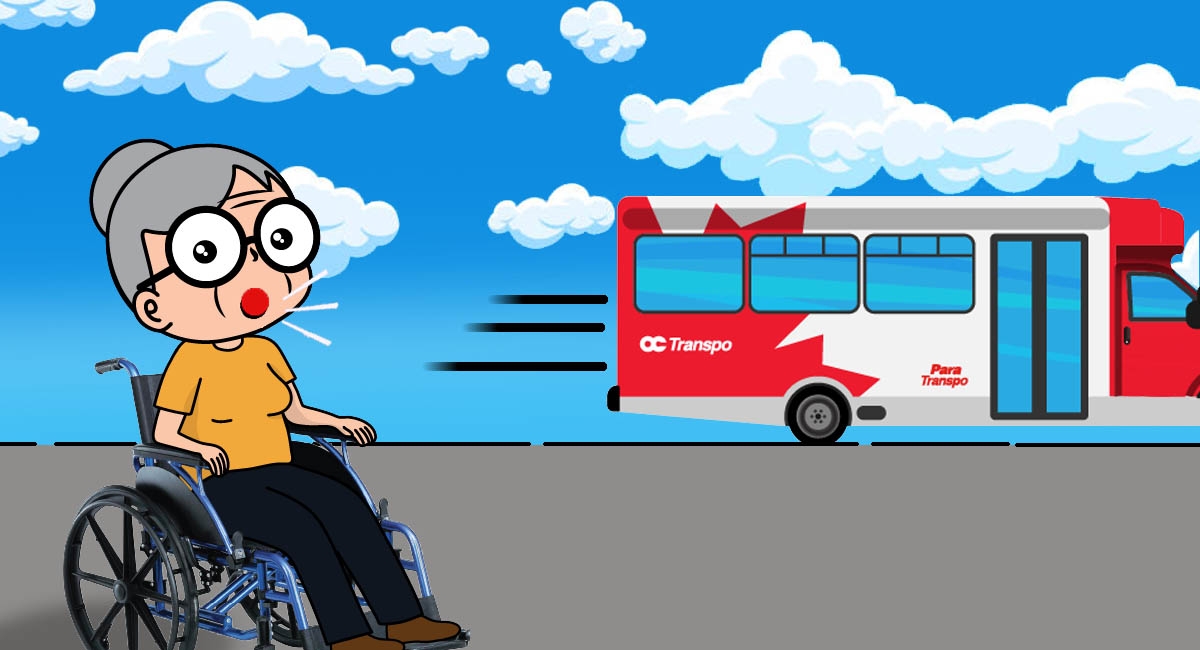
Ottawa To Expand Paid Parking Hours to Boost Turnover & Cut Traffic
The City of Ottawa is considering moving forward with a series of changes to on-street parking rules in areas where demand is consistently high, a move city staff say will boost turnover and reduce congestion during peak periods.
At a recent meeting of the Public Works and Infrastructure Committee, city staff presented the results of a long-awaited citywide review of parking rates and hours, initially identified as a priority in the 2018–2019. The review—delayed by the COVID-19 pandemic—was completed following consultations with 30 stakeholder groups.
Staff emphasized that the proposed changes are not aimed at increasing revenue, but are based on research showing that extending paid parking hours encourages turnover, which makes parking more available and cuts down on “cruising” — the common practice of drivers circling for an open spot.
While city staff framed the move as data-driven and beneficial, the proposal sparked concern among many delegates, particularly from small business owners in the downtown core.
Darryl Cox, representing the Glebe Business Improvement Area (BIA), voiced a concern shared by many business owners: the perception that paid parking deters customers. Councillor Ariel Troster responded by stressing that the city is following data, not impressions, and noted that parking patterns are reviewed twice annually. Adjustments, she said, are made annually as needed based on consistent data trends.
There was widespread agreement among speakers that small downtown businesses—already struggling—could be disproportionately affected, especially when compared to suburban big-box stores and malls that offer free parking.
Several delegates highlighted parking challenges in the ByWard Market, including “aggressive” enforcement that results in ticketing.
Chris Pierre, a Market-area business owner, cited safety and parking as the Market’s top issues, adding that public transit is not a viable alternative for many due to open drug use and safety concerns at the Rideau LRT station.
Only one delegate, Cassie Smith from the EnviroCentre, spoke in favour of the changes. She argued that paid parking helps reduce emissions by increasing turnover and availability, citing Donald Shoup’s book The High Cost of Free Parking and pointing out that a third of downtown traffic is caused by drivers looking for a spot.
Restaurateur Stephen Beckta was among those warning the committee about unintended consequences. He said the two-hour parking limit already disrupts dining experiences, particularly for larger groups, and worries about its effect on businesses that rely on evening parking. While his Elgin Street restaurant has access to the City Hall underground parking, his ByWard Market and Westboro restaurants will be impacted.
Beckta explained that it’s not practical to move your car mid-meal and called for the city to consider increasing the allotted time to three hours or adopting a pay-by-app option, like in Montreal, allowing patrons to extend their parking time without leaving the table. Without such improvements, he warned, downtown could face a “hollowing out” as diners choose more accessible areas of the city.
Councillor Troster noted the city does plan to implement a pay-by-app system soon.
City staff said that, if approved by Council, the new standardized parking hours will be 8:30 a.m. to 5:30 p.m. on weekdays, 10 a.m. to 5:30 p.m. on weekends, and—where demand warrants—extended to 9 p.m. Free Sunday parking will be eliminated, and five new paid parking zones will be introduced in Kitchissippi Ward.
Staff emphasized that any revenue generated from the changes will be reinvested in the community, funding initiatives such as sidewalk upgrades, electric vehicle charging stations, and bike parking.
The recommendations now go to Ottawa City Council for a final vote on Wednesday, May 28. The full Public Works and Infrastructure Committee meeting is available for public viewing here.









